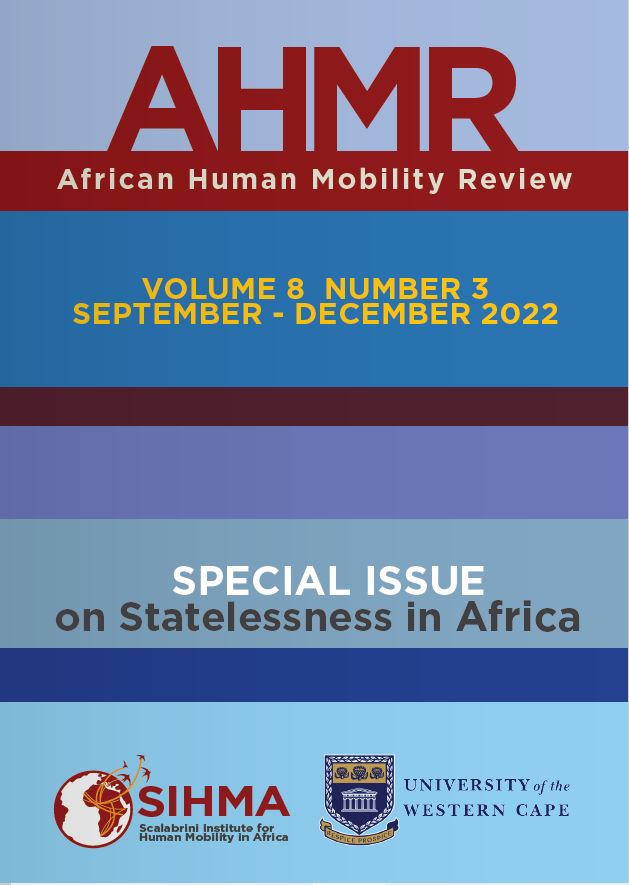Main Article Content
Statelessness, Trauma and Mental Well-being: Implication for Practice, Research and Advocacy
Abstract
The issue of statelessness is inextricably linked to psychosocial wellness and is a crucial mental health factor to consider in the holistic care, and protection of stateless persons. There is a dearth of research and limited literature examining the mental health implications for stateless persons and their exposure to multiple and ongoing rights violations. This paper describes the systematic and systemic human rights violations linked to statelessness and how these contribute to individual trauma and stress — subsequently affecting well-being. The paper utilises a basic trauma lens in understanding statelessness and presents a novel contribution to interventions addressing statelessness. Findings from the study reveal statelessness-linked stressors.
Historic systematic human rights violations, traumatic events and situations, and daily stressors be come mental health burdens and challenges for those experiencing statelessness. Service providers working with stateless persons should be aware of the impact of statelessness on mental health and should refer cases to mental health and psychosocial practitioners who can provide services that reduce socio-emotional distress while strengthening resilience and coping strategies. The findings emphasise the promotion of stateless people’s psychosocial well-being — looking at both curative and preventative strategies, toward the establishment of just and inclusive societies.





